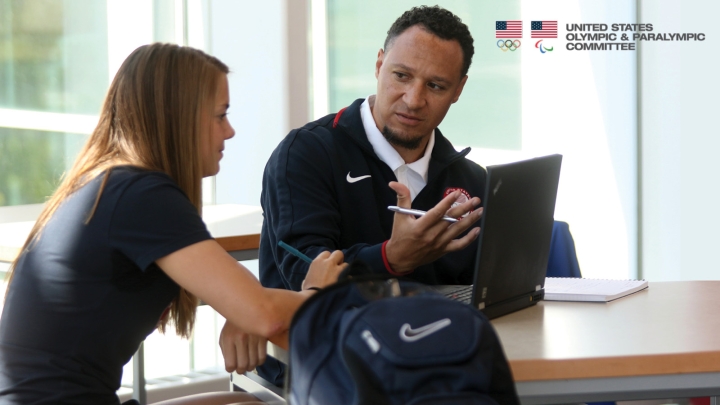
Roughly 1 in every 4,000 people will grapple with retinitis pigmentosa, a degenerative eye disease that causes impaired vision, difficulty seeing at night, and even complete blindness.
The disease is caused by gene mutations that ultimately limit the function of cells within the retina–undermining the eye’s ability to see–but exactly how these mutations impact cellular function is unknown.
Corina Maeder ’99, Ph.D., an associate professor of chemistry at Trinity University, has earned a three-year, $450,000 grant from the Max and Minnie Tomerlin Voelcker Fund to research how mutations in two specific genes contribute to the eye disorder.
Specifically, Maeder has won the Voelcker Fund Young Investigator Award, which the foundation bestows to San Antonio-area scientists studying a host of conditions, including arthritis, heart disease, retinitis and macular degeneration. Maeder is the first Trinity professor to earn a grant from the foundation, which typically issues the award to researchers at larger institutions.
Maeder and undergraduate students in her lab will study how gene mutations impair the body’s ability to make enough of the proteins required for proper retina function.
Maeder’s primary research focus is pre-messenger RNA splicing, a process where extra genetic information gets removed before it’s translated into proteins. When extra information doesn’t get taken out, it’s akin to superfluous musical notes on a score when they don’t belong, she says.
“If you leave a few extra notes in there, a few little extra pieces of information, then now you might make a totally different protein or one that doesn’t function,” Maeder says. In other words, mutations that specifically affect the machine removing the extra information are the problem.
The goal of the research is to contribute to the broader body of research relied on to develop therapeutics for the disease, Maeder says.
Maeder, who graduated from Trinity with a bachelor’s degree in biochemistry, says the award demonstrates that Trinity is operating on an elevated level in its research, due in part because of buildings like the Center for the Sciences and Innovation.
“The beauty of the building itself and the kind of instruments that we have are on par with some of the top research institutions that I’ve been at,” Maeder says. “We have the ability to do that research because we have the infrastructure to do it and...that has allowed us to be successful in doing this higher quality research.”
Maeder says the research will be a collaborative effort among students in her lab. Rather than a top-down approach, her lab functions by having students with the most expertise on a given technique share their knowledge with others.
As students return to Trinity this semester, they’ll be navigating a campus environment altered by the COVID-19 pandemic, both physically and in other ways. While that will inevitably change how lab work is conducted, Maeder says, research will continue with added safety precautions.
Maeder says part of the research’s draw is excavating the tie between molecular processes and how that relates to a disease impacting the lives of thousands.
“You make one single nucleotide change, which through changes in splicing, results in a disease,” Maeder says. “How does that microscopic change now result in the entire set of things not working? It’s the mystery.”


